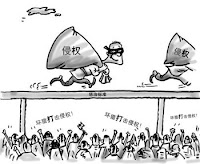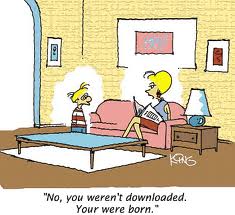On World Interlecual Property Organisations home page i found this explanation on intellectual property:
Intellectual property (IP) refers to creations of the mind: inventions, literary and artistic works, and symbols, names, images, and designs used in commerce:IP is divided into two categories: Industrial property, which includes inventions (patents), trademarks, industrial designs, and geographic indications of source; and Copyright, which includes literary and artistic works such as novels, poems and plays, films, musical works, artistic works such as drawings, paintings, photographs and sculptures, and architectural designs. Rights related to copyright include those of performing artists in their performances, producers of phonograms in their recordings, and those of broadcasters in their radio and television programs.
The pillar of the copyright, the originator's exclusive right to work, applies worldwide. The exclusive rights ensures the originator the opportunity for a dividend of efforts.
This is the core of why we should respect the right of intellectual property.
When a musician, a writer, a photographer, or other performers of artistic works receive the economic benefits of their product , it gives them the opportunity to work on their creativity. They get the finances to develop themselves and their products so that we as the public can enjoy more and more new musical works, books, art, computer programs, photos, and more.
An increased supply of knowledge and cultural expression, gains the whole community.
Intellectual property (IP) refers to creations of the mind: inventions, literary and artistic works, and symbols, names, images, and designs used in commerce:IP is divided into two categories: Industrial property, which includes inventions (patents), trademarks, industrial designs, and geographic indications of source; and Copyright, which includes literary and artistic works such as novels, poems and plays, films, musical works, artistic works such as drawings, paintings, photographs and sculptures, and architectural designs. Rights related to copyright include those of performing artists in their performances, producers of phonograms in their recordings, and those of broadcasters in their radio and television programs.
Today it is very common to copy music or other artistic works, and post it on the internet. In this way, anyone can load it down and use it without paying anything to the artist.
The pillar of the copyright, the originator's exclusive right to work, applies worldwide. The exclusive rights ensures the originator the opportunity for a dividend of efforts.
This is the core of why we should respect the right of intellectual property.
When a musician, a writer, a photographer, or other performers of artistic works receive the economic benefits of their product , it gives them the opportunity to work on their creativity. They get the finances to develop themselves and their products so that we as the public can enjoy more and more new musical works, books, art, computer programs, photos, and more.
An increased supply of knowledge and cultural expression, gains the whole community.








